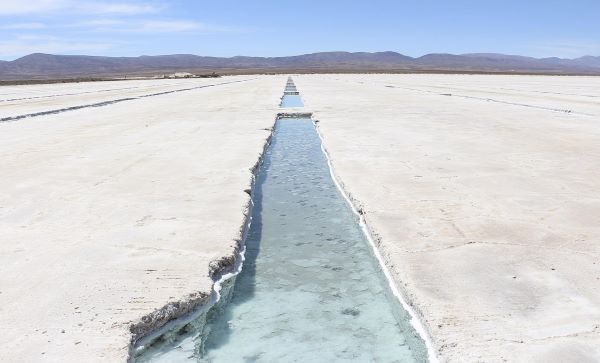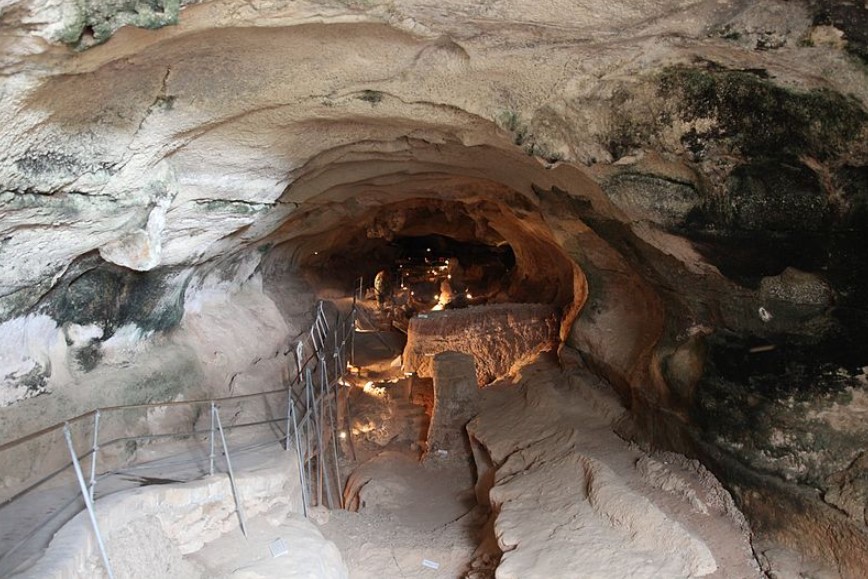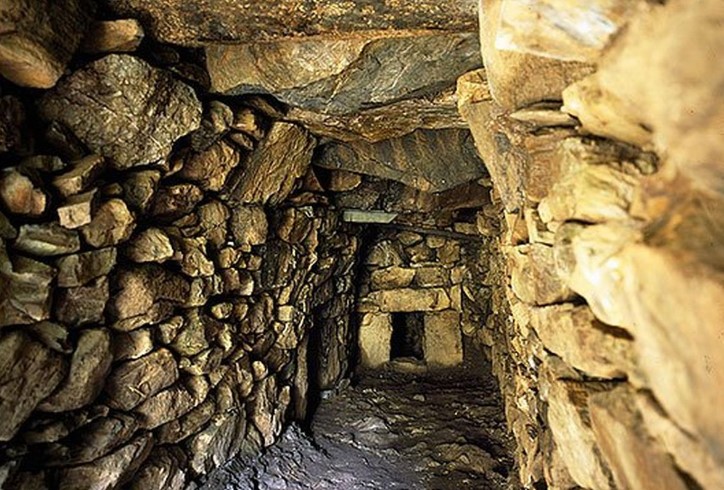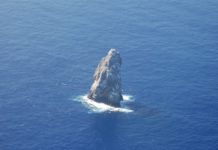Wadi Mujid historically famous as Arnon is a gorge in Jordan actually enters the Dead Sea at 410 meters below sea level. The Mujib Reserve of Wadi Mujib (The 220 square kilometers reserve created in 1987) is located in the mountainous landscape to the east of the Dead Sea, about 90 kilometers south of Amman.
These reserves particularly support the bird life of the Royal Society. The Mujib reserve consists of a mountainous, rocky, and sparsely vegetated desert with cliffs, gorges, and deep wadis cutting through plateaus.
Wadi Mujib enjoys splendid biodiversity that is still being explored and documented today. More than three hundred species of plants, 10 species of carnivores, and several species of perpetual and migratory birds have been recorded till now. Specific remote mountain and valley areas are tough to reach, and thus offer safe havens for infrequent species of cats, goats, and other mountain animals.
During the last Ice Age, the water of the Dead Sea flooded the lower areas of the canyons along its banks. As the climatic conditions changed, the water level dropped, leaving the re-emergent canyons blocked by lake marl. However, Wadi Mujib, the biblical Arnon River, abandoned its former outlet by breaking through a cleft in the sandstone. This thin cleft became the bottleneck of an extremely large drainage basin with a massive discharge. But with the passage of time, the cleft was scoured deeper and the gorge of Wadi Mujib was formed.
The hot springs of Hammamat Ma’in lie close to the borders of the reserve and are heavily used for tourism and recreation. While the Jordanian military has a provisional camp in the south of the reserve. A huge dam was newly finished at the bottom of the wadi, where the modern roads are crosses the river and as a result, a big lake has formed. Today, Wadi Mujib is fed by seven tributaries.
As well as resident birds, the reserve is strategically vital as a safe stop-over for the huge number of birds that fly annually along the rift valley between Africa & northeast Europe. It is possible to see the following birds in Mujib Lammergeier, Egyptian Vulture, Eurasian Griffon, Levant Sparrowhawk, Lesser Kestrel, Sooty Falcon, Sand Partridge, Hume’s Owl, Hooded Wheatear, Blackstar, Arabian Babbler, Striolated Bunting, Trumpeter Finch, Dead Sea Sparrow, Tristram’s Starling. One of the most important animals in Mujib is the Nubian ibex, a big mountain goat that has been threatened due to overhunting.
Despite its scenic beauty and value to the country’s heritage, the Nature Reserve of Mujib Valley is facing a new threat from the persistent problem of water. In 1998 the government approved a plan to take water from the lower Mujib River and distract its supply to hotels and agricultural projects around the Dead Sea. This means that the river bed below the weir to be constructed is expected to be dry for most of the year, effectually killing off all the vegetation there.
Wadi Mujib is a very uneven, warm area, and the walk is easily called “an adventure walk” because it comprises swimming and hiking for extended hours in addition to descending a 20 m high waterfall. They are hard yet fun trails and one has to have swimming abilities without any fear of water and heights. It is tough, and exciting, offering a chance to swim and bathe in the cool, clear waters of the Mujib and Malaqi rivers.
Tourists should anticipate climbing rocks against water flows and jumping into pools of water. So it is suggested to drink water and takes light food for snacking during the hike and make sure to bring 2 bottles of water per person. Remember that you are going to hike and swim, so subtle items should be put in waterproof bags.
It is highly recommended not to wear any jewelry or expensive watches. The most exciting attraction of Wadi Mujib is the adventure tour along the river an entire day trip that takes you through deep canyons and pools where you can swim and relish the remarkable scenery and wildlife.
There’re shorter hikes which you can stay overnight at the wilderness campsite. Visits to the ibex breeding enclosure are included in another walk. Wadi Mujib is a pleasing place for nature lovers who are fit and like to relish walking. However; the facilities are simple and it can get very hot in summer. The Wadi Mujib Trail is famous whereas pre-booking is necessary, and you can book either directly at the Reserve or by phone/fax or email directly to the RSCN.
Read More – Yosemite National Park Sierra Nevada of California USA












